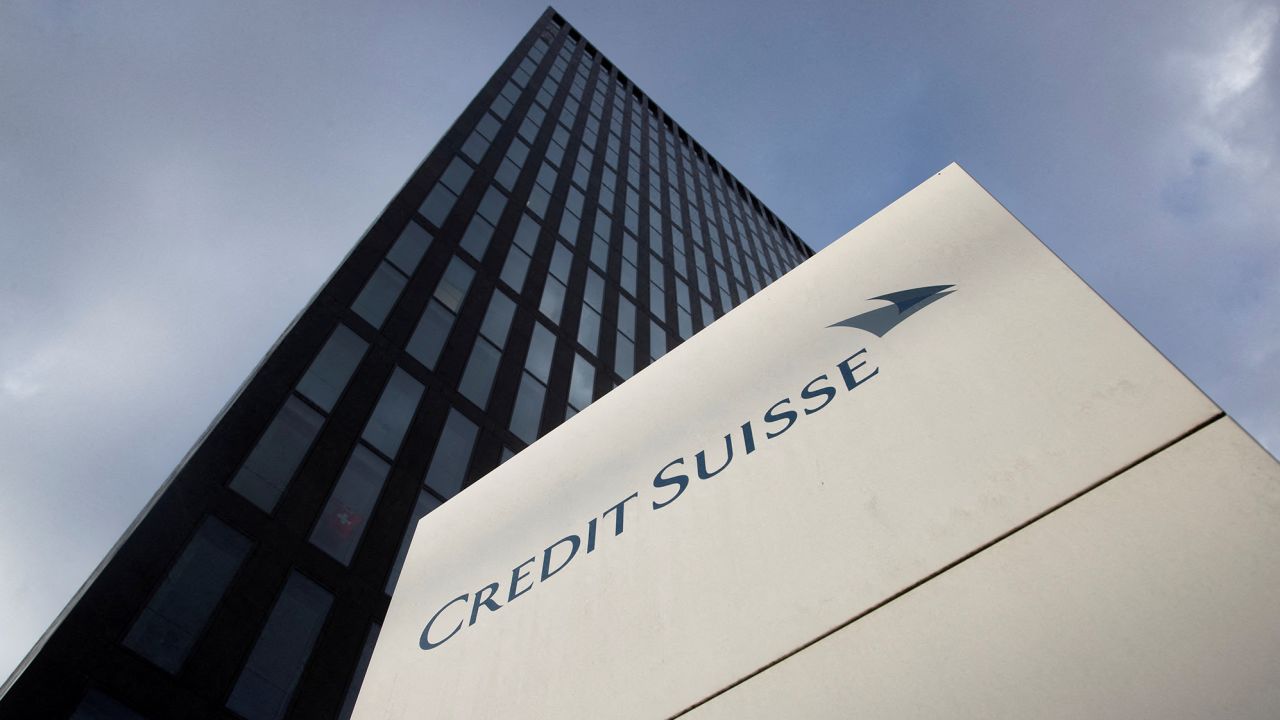Credit Suisse shares crash as Saudi investor rules out more funds
London — Shares of Credit Suisse crashed as much as 30% Wednesday to a new record low after its biggest backer appeared to rule out providing any more funding for the embattled Swiss lender.
Speaking to reporters on the sidelines of a conference in Saudi Arabia, the chairman of the Saudi National Bank said it would not increase its stake in Credit Suisse.
“The answer is absolutely not, for many reasons. I’ll cite the simplest reason, which is regulatory and statutory. We now own 9.8% of the bank — if we go above 10% all kinds of new rules kick in, whether be it by our regulator or the European regulator or the Swiss regulator,” Ammar Al Khudairy told Bloomberg. “We’re not inclined to get into a new regulatory regime.”
Saudi Arabia’s biggest bank invested $1.5 billion in Credit Suisse last fall, becoming the largest shareholder in the process.
Once a big player on Wall Street, Credit Suisse has been hit by a series of missteps and compliance failures over the past few years that have damaged its reputation with clients and investors, and cost several top executives their jobs.
Customers withdrew 123 billion Swiss francs ($133 billion) from Credit Suisse last year — mostly in the fourth quarter — and the bank reported an annual net loss of nearly 7.3 billion Swiss francs ($7.9 billion), its biggest since the global financial crisis in 2008.
In October, the lender embarked on a “radical” restructuring plan that entails cutting 9,000 full-time jobs, spinning off its investment bank and focusing on wealth management.
Al Khudairy said he was pleased with the restructuring, adding that he didn’t think the Swiss lender would need extra money.
Others are not so sure.
Johann Scholtz, a European banking analyst at Morningstar, said Credit Suisse might no longer have enough capital to absorb losses in 2023 because its funding costs were becoming prohibitive.
“To stem client outflows and ease the concern of providers of wholesale funding, we believe Credit Suisse needs another rights [share] issue,” he commented Wednesday. “We believe the alternative would be a break-up … with the healthy businesses — the Swiss bank, asset management and wealth management and possibly some parts of the investment banking business — being sold off or separately listed.”
‘Not just a Swiss problem’
The bank’s shares were last down 24% in Zurich on Wednesday, and the cost of buying insurance against the risk of a Credit Suisse default hit a new record high, according to S&P Global Market Intelligence.
The Financial Times reported that Credit Suisse had appealed to the Swiss National Bank and the Swiss regulator Finma for a public show of support.
Credit Suisse declined to comment. The Swiss National Bank and Finma also declined to comment and the European Central Bank said it “cannot comment on individual banks.” The ECB has an indirect role in regulating Credit Suisse because of the bank’s presence in eurozone countries such as Germany, Italy and Spain.
Two supervisory sources told Reuters that the ECB had contacted banks to quiz them about their exposures to Credit Suisse.
The crash spilled over into other European banking shares, with French and German banks such as BNP Paribas, Societe Generale, Commerzbank and Deutsche Bank falling between 8% and 12%. Italian and UK banks also slumped.
Markets were already on edge because of the collapse of Silicon Valley Bank (SVB) last week. And while the problems at Credit Suisse were widely known, with assets of about 530 billion Swiss francs ($573 billion) it presents a much bigger potential headache.
“[Credit Suisse] is much more globally interconnected, with multiple subsidiaries outside Switzerland including in the US,” wrote Andrew Kenningham, chief Europe economist at Capital Economics. “Credit Suisse is not just a Swiss problem but a global one.”
The blows keep coming for Switzerland’s second biggest bank. On Tuesday, it acknowledged “material weakness” in its financial reporting and scrapped bonuses for top executives.
Credit Suisse said in its annual report that it had found “the group’s internal control over financial reporting was not effective” because it failed to adequately identify potential risks to financial statements.
The bank is urgently developing a “remediation plan” to strengthen its controls.
Speaking to Bloomberg TV on Tuesday, Credit Suisse CEO Ulrich Körner said the bank saw “material good inflows” of money on Monday, even as markets were spooked by the collapse of SVB and Signature Bank in the United States.
Overall, outflows from the bank had “significantly moderated” after customers withdrew 111 billion francs ($122 billion) in the three months to December, Körner added. In its annual report, the bank said outflows had not yet reversed by the end of last year.
Körner said the collapse of SVB was “somewhat of an isolated problem.” Credit Suisse follows “materially different and higher standards when it comes to capital funding, liquidity and so on,” he added.

